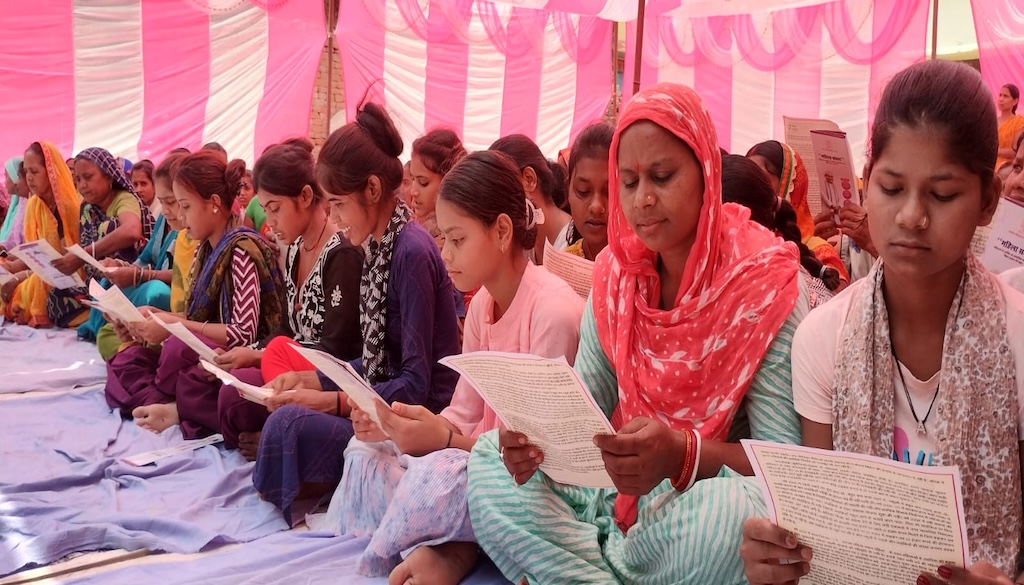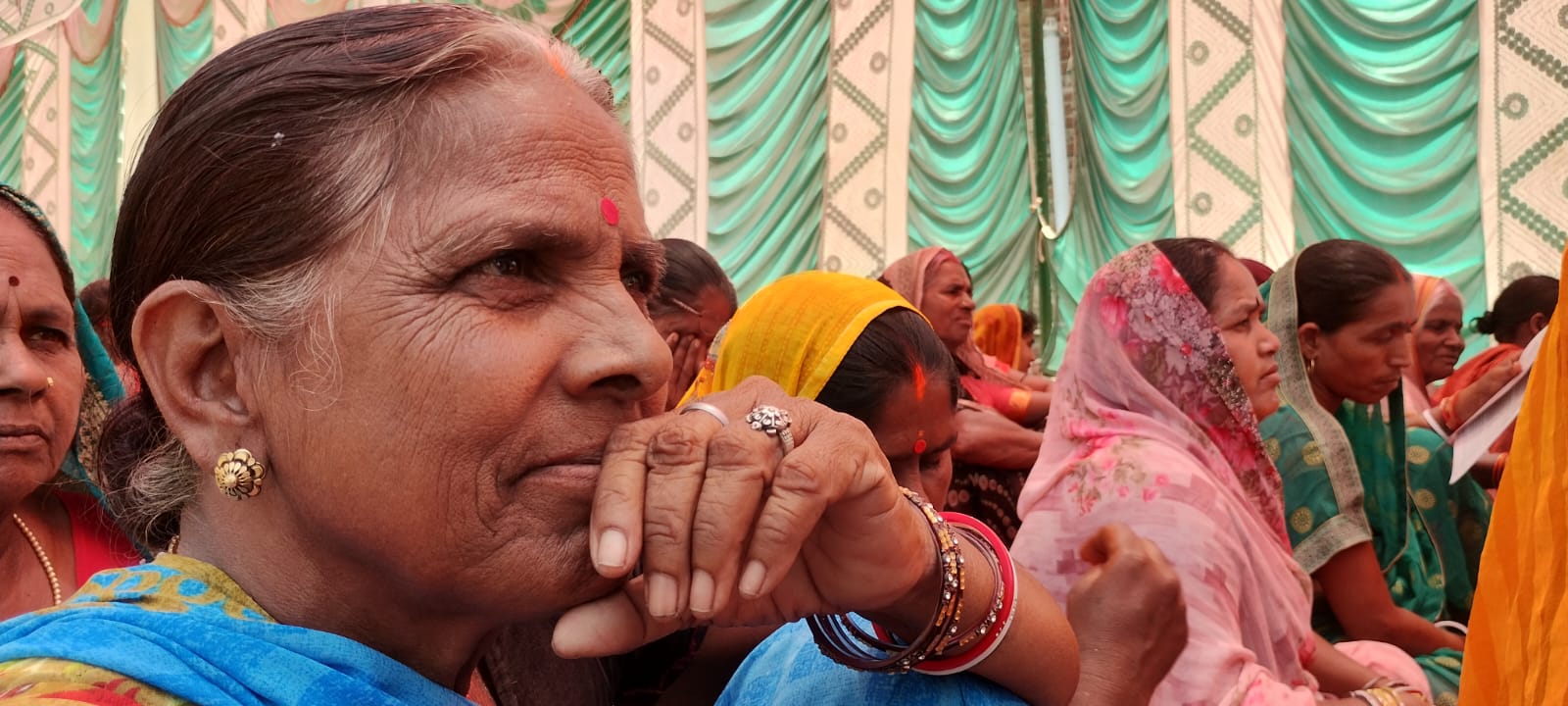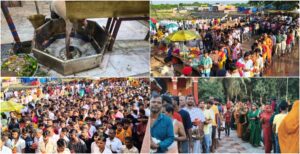From Schools to Seeds: Bihar Women Raise Grassroots Demands in Mahila Samvad Programme
On Day 25 of Mahila Samvad, women across rural Bihar continued to raise demands for local schools, health centres, livelihood support and basic amenities like drainage and drinking water. Participation remained high in districts like Patna, Lakhisarai, Kishanganj, Darbhanga and Rohtas, with both JEEVIKA and non-JEEVIKA members contributing.

Patna: On the 25th day of the Mahila Samvad programme, women across rural Bihar continued to voice their priorities, demanding better access to education, healthcare and livelihood opportunities. Participation peaked in districts such as Patna, Lakhisarai, Kishanganj, Darbhanga and Rohtas, where women from both JEEVIKA and non- JEEVIKA groups actively took part.
A recurring demand from participants was for upper primary and secondary schools within walking distance, especially for girls. In several blocks, women stressed the need for setting up colleges, hostels and free digital learning facilities such as smart classrooms and laptops.
Health remained another key concern. From Siwan to Kishanganj, women asked for mobile medical units, functional primary health centres and 24-hour maternity services. The call for safe drinking water, improved drainage and toilets near busy public spaces like haats and schools was echoed across multiple districts.
Livelihood and agriculture-related demands also featured prominently. Women sought support for kitchen gardens, animal sheds and irrigation facilities. Many asked for cold storage units, beekeeping and dairy training and marketing assistance for handmade goods. A large number of women pushed for the creation of local weekly markets to sell their pickles, snacks and textile products directly.

In Lakhisarai, several groups highlighted the need for dedicated spaces to hold SHG meetings, such as JEEVIKA Bhawans. In Kishanganj, farmer collectives called for seed centres at the panchayat level to avoid seasonal shortages and ensure access to certified seeds. In Darbhanga, women requested solar lights and flood-resistant infrastructure in low-lying areas.
Beneficiary stories also emerged during the day’s sessions. In Kadwa block of Katihar, Rosy Kumari, a Class 11 student, expressed her desire for government-distributed laptops.
“With technology-based education becoming the norm, village girls like us need better tools to keep up,” she said.
In Kishanganj’s Moudho Panchayat, Rubina Begum, a small-scale farmer, shared how unreliable seed quality had affected her crop yield last year. She said, “A seed centre in our village could help hundreds of women farmers like me avoid such losses.”
Each of these concerns is being recorded and routed to the appropriate departments for review through a mobile app-based MIS system. As of 12 May, over 1,85,000 aspirations have been logged across Bihar.
Mahila Samvad continues to serve as a direct bridge between the women of Bihar and the state’s development agenda. The sessions not only inform participants about existing schemes through videos and leaflets but also collect feedback for future policymaking.





